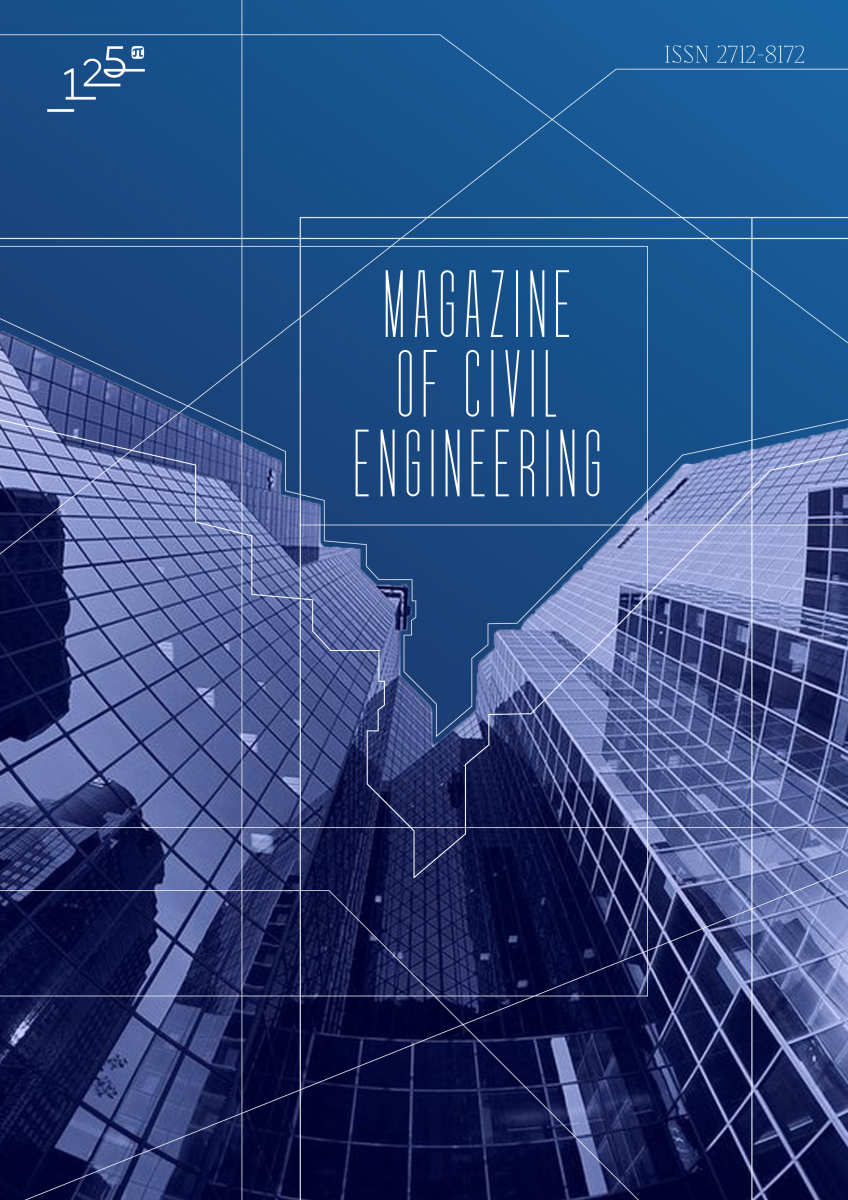Bearing capacity of steel-reinforced concrete floor elements before the operation period
The paper reflects the results of a survey and assessment of the technical condition of steel-reinforced concrete floor slabs using the “Hoesch Additiv Decke®” technology. Poor execution of concreting and reinforcing, lack of combined action between the elements of the slab, various deviations from the project significantly affect the stress-strain state of the steel-reinforced concrete floor. The aim of the work is to study the influence of various factors on the stress-strain state of steel-reinforced concrete floor slabs using the “Hoesch Additiv Decke®” technology before their operation. The main objectives of this study are: assessment of the technical condition of the steel-reinforced concrete floor slab, detection of defects and damage in the elements of the slab; check calculations of strength, deformability and fluctuation of individual elements, taking into account the identified defects and damage; search for the main decisive parameters in the production of construction and installation works, which significantly affect the strength, deformability and durability of the structure. The object of the study is the elements of the combined steel-reinforced concrete floor. The paper considers the influence of various factors on the stress-strain state of a combined steel-reinforced concrete floor before the start of operation. The authors apply the calculation-analytical method of research. The strength of the slab elements is checked using the “Scad Office” program. The verification of the deformability and fluctuation of the overlap is carried out by manual calculation in accordance with current regulations. Results. The authors performed check calculations of the slab elements, taking into account the identified defects and damages, the actual reinforcement and the thickness of the slab. Deficiencies in the construction and installation works and design errors led to a large number of defects in the floor, such as overloading of the slab, the appearance of force cracks in the slab above the beams, excessive deflections of structures, defects in reinforcement and in concreting. It is required to carry out comprehensive measures to strengthen the floor slabs according to a specially developed construction project developed by a specialized organization. Conclusions. The authors give recommendations on ensuring the operational characteristics of the examined bearing elements based on the results of assessing the technical state of the structures. The results of the research can be used in practical work by engineers in the design and construction of steel-reinforced concrete floor slabs, as well as in the examination and assessment of their technical state.


